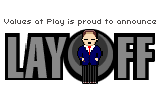VAP @GLS
Tiltfactor ran another successful Grow A Games workshop last week at the Games, Learning, and Society Conference in Madison, Wisconsin. Twenty people participated in the workshop, running through different one- and two-card exercises. As usual, some really unique game designs were developed, and there was thoughtful discussion about games as expressive media.
After drawing the cards Cooperation and Destruction, one participant mused about how the Cold War was a kind of game where the participants cooperated in plans for their mutual destruction. I love facilitating these workshops because of remarks like this one. The cards juxtapose dissimilar ideas and then participants bend their brains imagining unique and creative analyses of issues. I would have read Cooperation and Destruction and imagined a “Rampage” type game, but this participant (who was a high school student-the youngest in the workshop) thought of international relations. Awesome.
Another group drew voting and humility and discussed the nature of electoral systems and how political campaigns foster arrogance, egotism and unrealistic pandering. They eventually developed a game where players vote on issues and get points for proving they took the other players’ ideas into consideration.
Finally, my favorite idea was one of the simplest. Monopoly is a perpetual font of great game mods, and drawing Monopoly and Empathy, one group came up with an elegant solution. Players would have to switch places when they role certain die combinations, trading board positions, property, and money. No player could be too abusive to another because they may find themselves suffering the consequences of their own predatory practices.
The game reminded me of some of the ideas discussed by Robb Lingren in his presentation on how perspective affects learning. From what he’s seen, people learn better when taught from the first person perspective; we more easily understand concepts and ideas when assuming the role of an expert. Players of the empathy Monopoly game would experience being both predatory capitalists and victimized member of the underclass, thus seeing how the economic system as a whole works.
Overall, GLS was an incredible conference with great food, helpful staff, and friendly, thoughtful participants. The organizers created a comfortable, fun environment where participants could discuss how to better integrate high quality video games into peoples learning lives. There was a general theme running through the conference that games are at a tipping point. We’re seeing more thought-provoking serious games, in both AAA titles and casual games and wider acceptance of games in educational circles. I generally agree with this, and think we could see a revolution in entertainment and education if game designers and advocates proceed skillfully.
If I have one criticism of the conference (and really, I think I only have one) it’s that we didn’t address what I see as the biggest issue in video games. The industry continues to be dominated by and promote the views of white males. Yes, there were a lot of progressive white males in attendance and that’s great, but we need to develop strategies to diversify whom games are made by and for. What I worry is that games will tip and became as pervasive as television, but without fixing some of these representational issues. Even if high quality educational or serious games become popular they will inadvertently perpetuate patriarchal white-supremacist ideologies. Educational videos are now common in the classroom, and I’m sure their advocates from the 70s and 80s would consider this a major coup. But most of them contain subtle white leader-centric history and so tacitly promote the status quo instead of opening students to a more diverse, and nuanced worldview.
I certainly wouldn’t expect a single conference to develop a solution to the problem of homogeneity in the videogame industry, but I was disappointed the issue wasn’t raised. Lisa Nakamura gave an interesting presentation on racism in World of Warcraft and the prejudice against Chinese gold farmers, but she dealt with racism in the gamer culture, not racism in game’s design. I’m not saying WoW is racist, I’m just saying we need to consider both the values players bring to games and the values designed into the games themselves. Games have great potential for good, but they also have great potential to perpetuate all the oppressive structures we already suffer under. I wonder how can we make games that represent the world as we want it to be, not just the world as it is?






